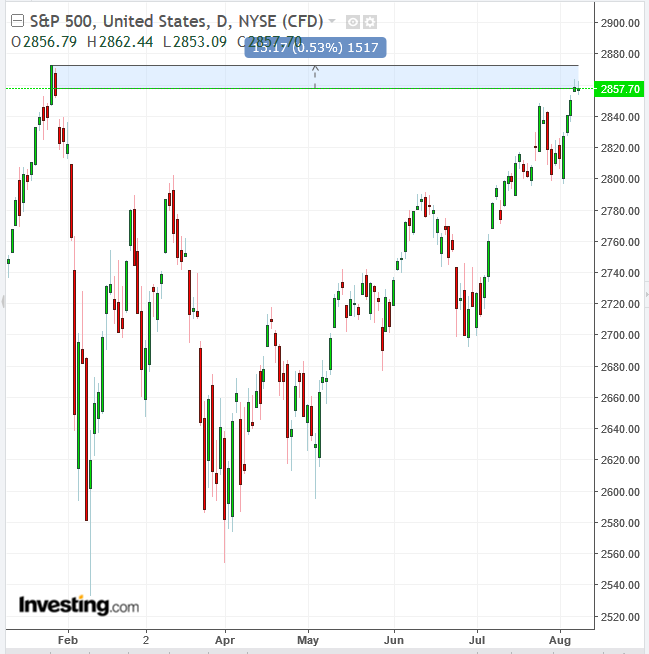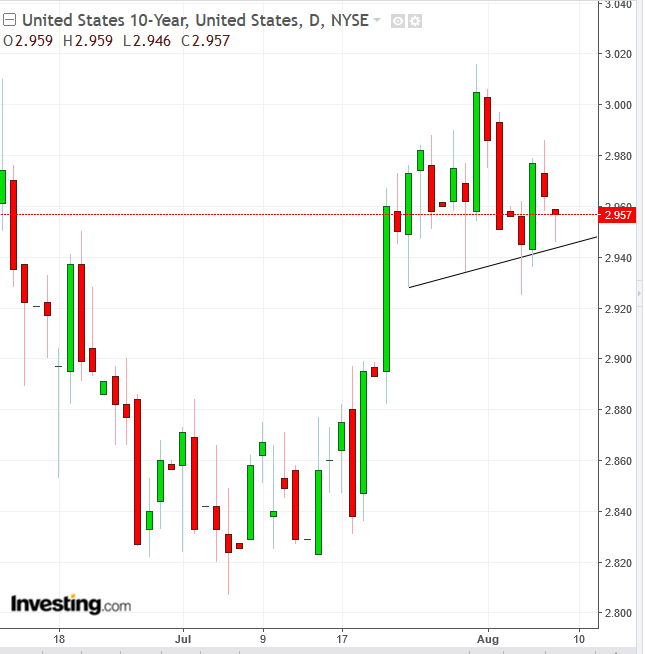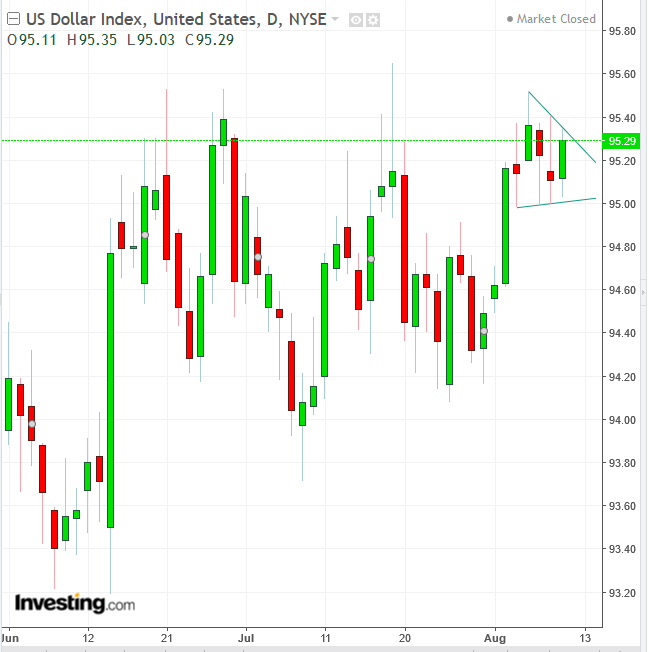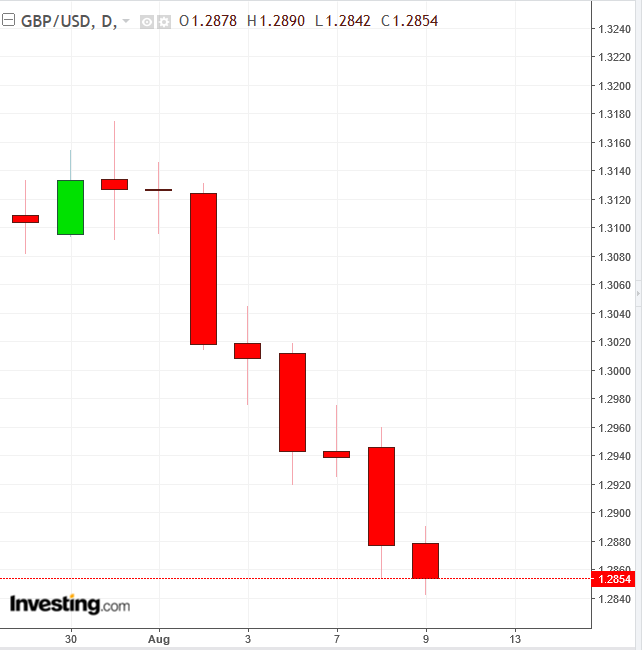-
European indices fail to follow Asian markets higher, hit by downbeat corporate reports
-
S&P 500 loses race to longest rally since February
-
Pound hurt by Brexit disputes, Russian Ruble and Turkish Lira by spat with the US
-
Samsung Electronics (KS:005930) is set to unveil its next Galaxy Note smartphone on Thursday.
-
The preliminary reading of Japan's second-quarter gross domestic product is out on Thursday. Economists expect a robust rebound from the first-quarter contraction.
-
Analysts expect data due on Friday will show a pick-up in US consumer prices in July
Key Events
The Chinese stock rally that lifted Asian markets on Thursday seemed to bypass European bourses, where downbeat corporate updates and Brexit headaches weighed on investor sentiment. Futures on the S&P 500, Dow and NASDAQ 100, instead, were all trading in positive territory, pointing to a possible equity rebound in the next US session.
The pan-European STOXX 600 slipped lower with most of its sectors. Lackluster earnings from Danish drugmakers Novo Nordisk (CO:NOVOb) and other corporate trading updates left investors unshielded from ongoing geopolitical jitters. UDG Healthcare (LON:UDG) took a 10-percent hit after flagging weakness in its contract sales and patient support services operations, re-igniting worries over the impact of Brexit on the domestic economy.
Earlier, in Asian trade, China’s Shanghai Composite outperformed its global peers, jumping 1.83%. This surprising bullishness was driven by positive earnings reports as well as speculation that Chinese policymakers may ramp up fiscal stimulus to offset the potential downward impact of the latest US tariffs. Chinese factory data showed inflation slowed in July, though consumer prices ticked higher.
Japan's TOPIX slid 0.26 percent, after trimming a 0.69 drop, probably upon support of Monday's lows. Hong Kong's Hang Seng followed the mainland index higher, gaining 0.88 percent. South Korea's KOSPI edged 0.1 percent higher and Australia’s S&P/ASX 200 climbed 0.47 percent.
Global Financial Affairs
In the previous US session, stocks halted a four-day rally on mounting trade tensions and fresh US sanctions against Russia.

The S&P 500 slid 0.03 percent minutes before the close, giving up what would have been its longest rally since February. The index is still about half a percentage point below its all-time high of late January. Consumer Staples (-0.76 percent) and Energy (-0.72 percent) stocks lagged behind. The underperformance of basic consumer goods, coupled with the outperformance of Technology (+0.27)'s shares, suggests investor mood wasn't entirely risk-off after all.
The Dow Jones Industrial Average dropped 0.18 percent. The NASDAQ Composite gained 0.06 percent, and the Russell 2000 retreated 0.08 percent.
With earnings season about to end, US stock prices would now need a different driver to sustain their propped-up levels.

Meanwhile, Treasurys boosted their gains after investors scooped up a record $26 billion 10-year bond auction, showing that rising US government issuance has yet to impact its credit cost. Investor demand narrowed the margin between the bond price and the yield, sending the latter lower. Technically, the 10-year yield rebounded from an extended decline today, forming a hammer, a bullish candlestick after a drop, above an uptrend line since July 24, which may prove to be the neckline of a small, H&S top.

In currency markets, the US dollar was on the rise, boosted by a weakening pound and probably by foreign demand for USD-denominated Treasurys. Technically, it is forming a continuation pennant, bullish with an upside breakout.

The British pound fell for the eighth straight session against the dollar as fears of a no-deal Brexit continued to weigh on trade. However, the cable was later seen re-gain some ground.
The Turkish lira and the Russian ruble extended their losses as separate disputes with the US deepened, while the kiwi dollar tumbled to a two-year low after the New Zealand central bank pushed out a rate hike.
Oil extended a drop, hovering at a seven-week low as trade tensions between the world’s two biggest economies overshadowed reports of a 1.2m barrel inventories draw for the week to August 3.
Most industrial metals gained, while gold slipped lower.
